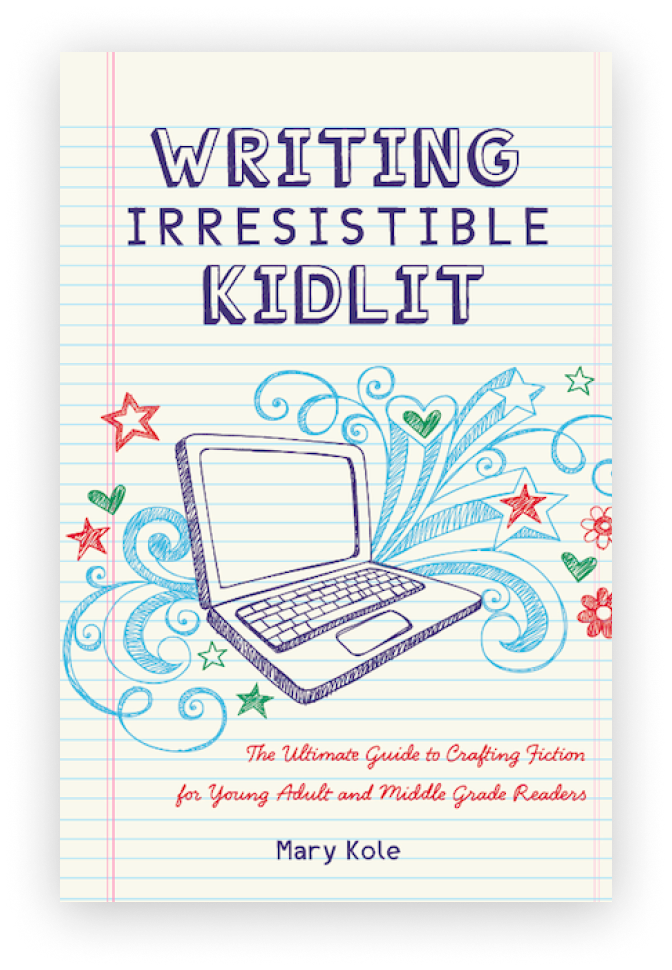Writing with Book Genres
By Mary Kole
Mary Kole is a former literary agent, freelance editor, writing teacher, author of Writing Irresistible Kidlit, and IP developer for major publishers, with over a decade in the publishing industry.
As an aspiring writer, you need to understand the different book genres available to you and how they can affect your writing, book idea, and selection of tropes. Choosing a genre, or several book genres, should not be a haphazard decision, but rather an intentional selection based on your writing style, interests, and target audience. In this comprehensive guide, we will explore the different book genres of today’s publishing marketplace, what sets them apart, and how you can use them to create a unique and compelling story that satisfies readers and stands out in a very crowded book landscape. So, let's dive in and explore the world of book genres!
Understanding Book Genres
The first step in understanding book genres is to know what they are and why they matter. A book genre is a category or classification that books are grouped into based on their content, writing style, and themes. There are many different book genres available, each with its unique traits, conventions, tropes, and expectations. Some common book genres include romance, science fiction, fantasy, thriller, mystery, horror, historical fiction, and others. These book genres can also apply across various categories and target audiences, such as young adult, middle grade, new adult, children’s books, and more.
Differentiating One Genre from Another
Book genres have their own defining characteristics that set them apart from others on shelves. Romance novels usually focus on love and relationships, and a romantic comedy will likely be trope-heavy and involve some misunderstandings and twists before the characters get together. Science fiction explores futuristic technology and is worldbuilding-intensive. Fantasy features imaginary worlds with magical beings and supernatural powers, while thrillers are characterized by tension, suspense, and very high stakes. Understanding these differences, especially as they apply to various book trope considerations, is important when choosing a genre to write within, as it can help you meet readers' expectations and satisfy their desires.
Writing Using Book Genres
Once you have selected a genre, or several book genres, as genre blending is also possible, it's important to learn the conventions and expectations of that genre to write effectively. Genre fiction often follows specific formulas and novel structures, which can make it harder to stand out in the market. However, finding ways to twist and subvert these expectations while still staying true to the genre can help your work stand out, too. No matter what you do, either use a trope or subvert it intentionally. For example, adding a non-traditional protagonist or setting can create a fresh take on a familiar genre.
Combining Book Genres
Chances are, you may find it hard to stick to just one genre when writing your story. Combining genres can create a unique and exciting experience for readers, but it's important to ensure that the elements of each genre are well-balanced and complement one another effectively. For example, blending fantasy and mystery might involve solving a magical murder mystery. Adding humor to a serious genre like horror can provide relief and create a unique tone and writing style. Remember that only one of your book genres can be primary, so if you have created a fantasy story where the world-building mostly supports a romance plot, then you can pitch it in your query letter as a romantic fantasy, or romantasy. If the fantasy story is primary, then you have a fantasy with romantic elements.
Knowing Your Audience
Ultimately, the most important aspect of writing within various book genres is knowing your target audience. Understanding what readers expect from a particular genre can help you write a story that is both satisfying and fresh. Take the time to research your genre and the readers who enjoy it. Looking into comparative titles from the last few years and see what other authors in the space are doing, so that you can either fit into the category or intentionally depart from it. This can also help you tailor your eventual book marketing efforts towards the right audience.
Understanding book genres is a crucial aspect of becoming a successful writer and, eventually, published author. Whether you're writing within a single genre or combining elements from different genres, being intentional and knowledgeable about your choices can help you create a compelling and marketable story. Keep in mind, however, that while genres can be useful when targeting readers, they should not limit your creativity. Don't be afraid to experiment and play with the conventions of your chosen book genres to create something unique and unforgettable.

Click here to purchase Writing Irresistible Kidlit, my book on fiction craft for MG and YA novels, out from Writer's Digest Books. This will show you my writing craft philosophy and give you lots of valuable advice, including tips for the novel revision process and self-editing. There are over 35 example novels cited and discussed throughout. It’s a valuable resource for any writer’s toolkit.
Click here to purchase Irresistible Query Letters, my book on query letters, including over forty examples with comprehensive notes on each one. There’s a ton of submission advice, best practices, and insider information in these pages, and you’ll really enjoy seeing what other writers are doing in the slush.
Click here to purchase Writing Interiority: Crafting Irresistible Characters, my book on interiority and character creation. Explore your protagonist’s thoughts, feelings, reactions and interpretations, expectations, and inner struggles to create a rich, immersive experience. This guide will empower you to create characters who live and breathe on the page, fostering an unbreakable bond with your audience.





